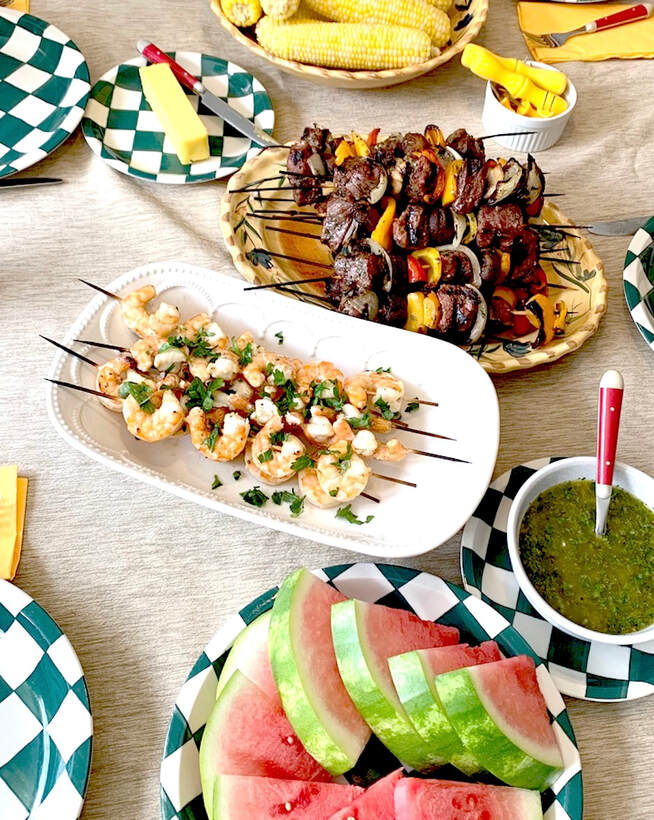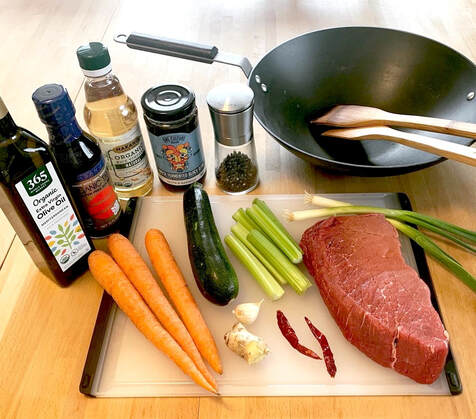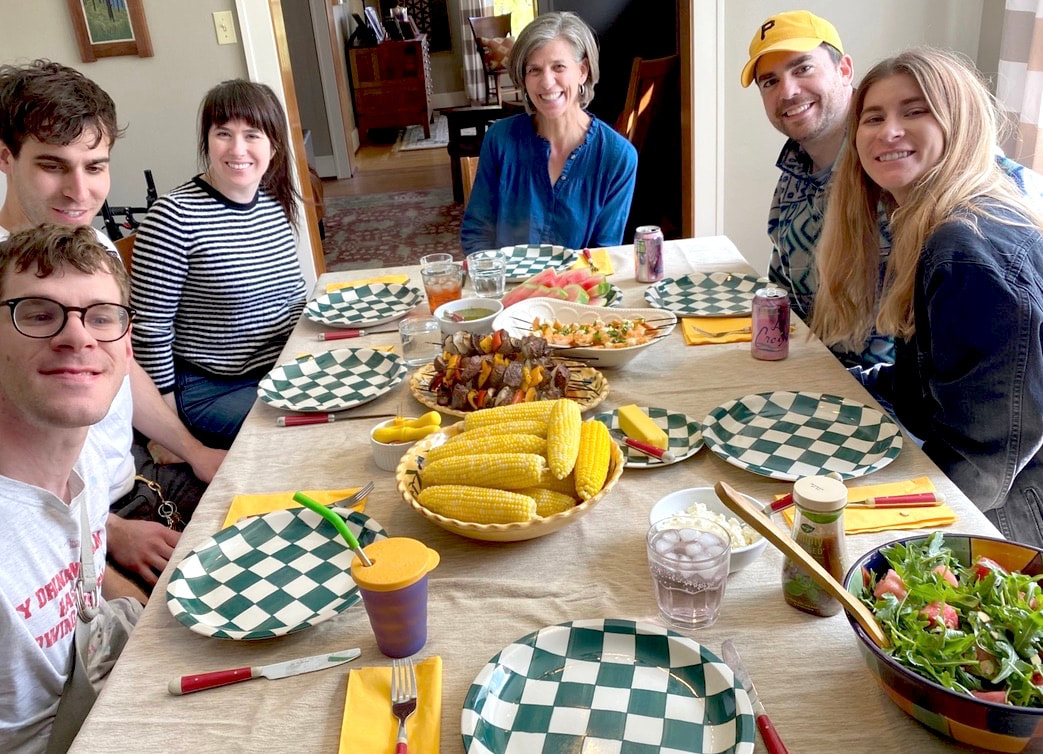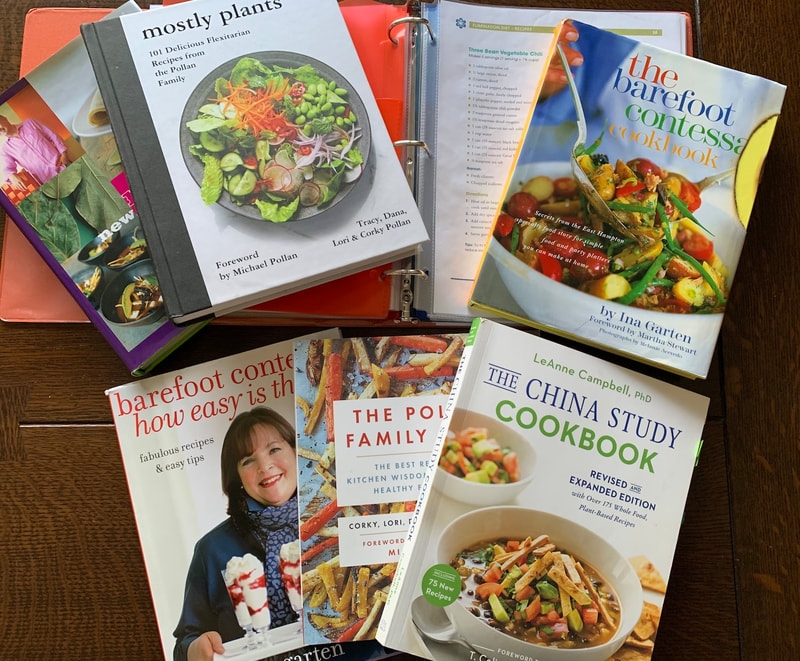|
By: Becky Brown, RPh, NBC-HWC Three simple words that used to take my stress level from zero to sixty as soon as I thought them or heaven forbid someone else dared to utter them are – ‘what’s for dinner?’ What’s For Dinner? Is your heart pounding just thinking about it? Did a quick inventory of your refrigerator, freezer, and pantry pass before your eyes? Are you wondering if you have everything on hand to make a favorite meal? Will the chicken thaw in time? Or do you have time to run to the grocery store? Take a deep breath, I’ve got you covered. Let me share my journey into meal planning and how it has become one of the cornerstones of my self-care. Time to tame the stress of what I call ‘the dinner time witching hour’ once and for all. Meal planning was not always a concept in my repertoire of self-care. Exercise, meditation, time for my own pursuits, time with friends, some pampering (massages, facials), and of course eating healthy came to mind when I thought of self-care. But meal planning wasn’t even on my radar as a means of self-care. Meal planning is asking the question ‘what’s for dinner’ once a week instead of revisiting that task every day. Meal Planning – The Early Days When my children were younger, I had a system to prevent a common complaint – ‘you never make anything I like for dinner!’ Each week I posted a sheet of paper on the refrigerator and invited my children (and husband) to write down their choice for one dinner that week. I would look over the list and plan which night I would make each of their chosen meals. Some creativity was required on my part to increase the nutritive value of a meal. This was especially challenging when my younger son’s (age 5 at the time) choices alternated between bagels, hotdogs, and macaroni & cheese with an occasional grilled cheese thrown in. It was the chef’s choice to select healthier sides or maybe a salad for my husband and I, to complement the main entrée. Everyone was happy at least one night out of seven. Mission accomplished., Fast forward 10-15 years – two of my children are grown and gone, and my youngest son and husband will eat just about anything. They’re just happy that I know my way around the kitchen. So here I was, right back where I started, asking myself – ‘what’s for dinner?’ 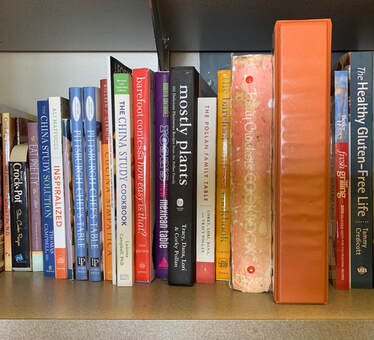 Somedays, I would remember to take something out of the freezer to thaw. Other days, I might have a vague idea of what we would eat for dinner. Or the ‘what’s for dinner’ question was always lurking in the back of my mind throughout the day taking up mental energy that could be put to better use. But most days, I’d look up from my work or a project I was immersed in only to realize – OMG, it’s already 5:00 PM and I have no idea #whatsfordinner. Enter stress... or worse, making bad choices. Meal Planning to the Rescue!! What is meal planning? Meal Planning is asking the ‘what’s for dinner’ question once a week instead of revisiting that task every day. Meal planning can save you time and money. You save time by not needing to make multiple trips to the grocery store each week. With an intentional plan for your grocery shopping, you won’t grab random ingredients that will never get used and eventually go bad in the refrigerator. Plus, you’re less likely to take the easy way out at dinner time by ordering take-out or eating out. Saving you even more money in the long run. Meal planning is adaptable to any style of eating or nutritional goals - whether you’re wanting to eat Paleo, Whole30, Keto, Whole Food Plant Based (WFPB), for brain health, for blood glucose control, or you’re just trying to eliminate processed foods and begin to enjoy real food. Meal planning can give you the added love and support you deserve to reach your desired nutritional, dietary, or weight loss goals. WHY I wanted to give meal planning a try:
My Meal Planning Evolution When I finally made the decision to start meal planning for the week, it wasn’t easy to make myself sit down each week and decide what I and/or my family would want to eat later in the week. At one point, I told myself that I just needed to force myself to do it. 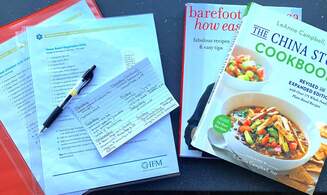 A rocky start There were several weeks that I managed to write out a meal plan, make my shopping list, and all was well and calm at dinner time. Then there were those weeks when I wasn’t so diligent and skipped the meal planning; only to show up each day distracted, rushed, and dreading that dinner time witching hour. I’m hungry, I’m tired, and the last thing I want to do is run to the grocery store. It was still a stressor in my life. The Ah-ha moment Then I realized I had my perspective all wrong – shout out to my health coach who helped me shift my perspective. I was focusing on the actual task of making my weekly meal plan and the grocery shopping. That took some major willpower, aka forcing. But then my perspective shifted and instead of looking at the task at hand, I focused on the vision of how I wanted to show up each evening at dinner time. I had a choice. Did I want to feel hurried, stressed, and cranky? Or, did I want to feel calm, prepared, and spend less time in the kitchen. The calm, prepared vision ruled the day. New perspective on meal planning
I now look at meal planning as proactive self-care that has a positive impact on many areas of my well-being. By shifting my focus on meal planning to an act of self-love rather than a task to be checked off my list has made all the difference and allowed it to fall into place as a supportive habit. This reminds me of a quote from Lucille Ball: Love yourself first and everything else falls into place. You really have to love yourself to get anything done in the world. Some Tips on Meal Planning When I first started meal planning, I only planned for three or four days at a time. It was too overwhelming at first to think it through for 7 days. But after much practice and trial and error, I often plan dinners now for the entire week. Although, some weeks it still makes sense to plan for fewer days. One advantage to planning for the entire week is I only need to make one big trip for groceries with perhaps just a quick trip for some fresh produce later in the week. My nutritional & dietary goals when meal planning What do I think about when I’m meal planning? I like to make a plan that ensures on a daily and weekly basis that I include the foods which I have learned support me in the areas of brain health and blood glucose control, provide my body with energy, and give me the nutrition I need to thrive, not just survive. Foods I like to include in my weekly & daily plan: 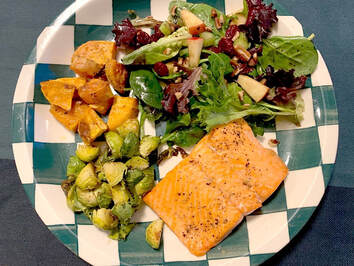
The method to my madness: how I meal plan
Additional tips
Is Meal Planning for You?
Are you ready to reframe the dinner time crunch? Are you curious if meal planning will help? If you choose to experiment with meal planning , here are some questions to ask yourself to help you get started:
If you are seeking some additional support with your meal planning adventures or are curious about how a health coach can provide the support you need to reach all your health and wellness goals, see our directory of National Board Certified Health & Wellness Coaches (NBC-HWC).
4 Comments
Jeralyn Bienvenu
4/1/2021 08:11:23 am
I love this!! It's interesting to see another way to meal plan. I do all of mine digitally and via Pinterest. I'm inspired by the index cards... because I like the idea of reaching for old ones to recycle, instead of recreating the wheel!
Reply
4/1/2021 09:28:08 am
Thanks, Jeralyn! Yes, there are multiple ways to tame the meal planning beast (aka, What's for dinner?). The only thing that matters is finding the method that works best for you. Glad I inspired you with my low-tech index card method with the added bonus of recycling those successful meal plans you've already created. Have fun!
Reply
Becky Brown
4/3/2021 05:12:04 pm
Glad to hear you found some useful tips to try. Wishing you successful planning & a happy dinner time!
Reply
Leave a Reply. |
take control of your health.Connect with a board certified coach to help you succeed with health changes. COACHES:
|

